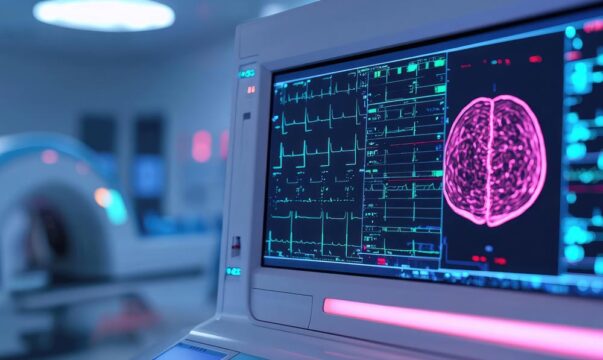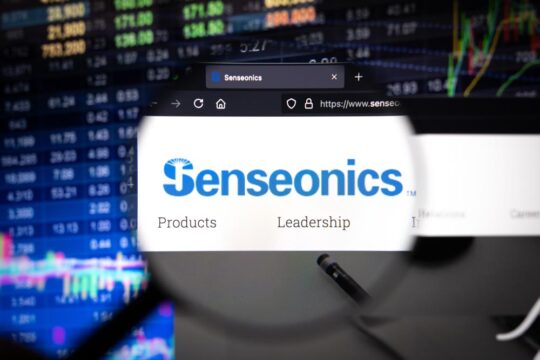Advertisment
ICML 2017: The role of stem cell transplantation for lymphoma in 2017
By Maria Dalby (article) and Esther Drain (interviews)
Even in an era of rapid progress in terms of new agents and treatment approaches, stem cell transplantation (SCT) continues to play a key role in the management of lymphoma. A key challenge for clinicians is to make decisions in a setting where there is a paucity of hard evidence from randomised clinical trials.
Professor Peter Borchmann (Cologne, Germany) debated at ICML-14 the role of transplant in HL in 2017 in view of the availability of new therapies and gives his key arguments here. Professor Anas Younes (Memorial Sloan Kettering Cancer Center, NY, USA) also discusses whether new therapies made transplant obsolete.
Even in an era of rapid progress in terms of new agents and treatment approaches, stem cell transplantation (SCT) continues to play a key role in the management of lymphoma. A key challenge for clinicians is to make decisions in a setting where there is a paucity of hard evidence from randomised clinical trials, and where standard comparator arms reflect continually changing practices. In his ‘Meet the Professor’ session Professor John Gribben from Barts Cancer Institute in London stressed that the risks and benefits of high-dose therapy and SCT must always be weighed against the outcome compared with standard therapy, and highlighted an urgent need for comparative clinical trial data to guide patient selection, timing of transplantation, and the choice of autologous SCT (ASCT) versus allogeneic SCT (alloSCT).
International SCTs registries (maintained by the European Society for Blood and Marrow Transplantation [EBMT] and the American Society for Blood and Marrow Transplantation [ASBMT]) have made recommendations regarding the use of SCT in lymphoma based on disease type and level of evidence. Indications that are supported by high-quality randomised clinical trials and/or observational studies are considered to be standard of care, whereas indications where such evidence is not available but where SCT has been shown to be an effective therapy with acceptable morbidity and mortality in sufficiently large cohort studies are considered a clinical option. In the absence of evidence and experience from use in clinical practice, SCT will be classed as not generally recommended outside of clinical trials. Some indications may also be considered as developmental.
In diffuse large B-cell lymphoma (DLBCL), ASCT is regarded as standard of care at the first relapse of disease that is sensitive to salvage therapy, as well as in primary refractory sensitive disease and at later relapse. This is largely based on evidence from the Parma study, which showed that high-dose therapy and ASCT were associated with higher event-free survival (EFS) and overall survival (OS) rates compared with conventional chemotherapy in patients with relapsed sensitive disease,1 and from the CORAL study, which showed that the survival benefit of ASCT over conventional chemotherapy remains significant also in the rituximab era.2, 3 ASCT is also a clinical option in patients who achieve first remission but remain PET-positive. The use of ASCT as a first-line therapy in high-risk DLBCL patients is regarded as a developmental indication; this setting remains controversial as randomised clinical trials have shown higher complete remission (CR) rates but no OS benefit. The use of alloSCT is recommended as a clinical option in relapsed and refractory sensitive disease and at relapse after ASCT; alloSCT is also a clinical option in relapsed and refractory disease that is resistant to salvage therapy but is not generally recommended at first remission in PET-positive disease or as first-line therapy in high-risk disease.
In follicular lymphoma (FL) ASCT remains the only potentially curative treatment option, despite dramatic improvements in survival in the rituximab era which have changed expectations in terms of outcomes. High-dose therapy and ASCT have been associated with superior EFS rates and at least equivalent OS rates to conventional chemotherapy in the first-line4-6 and relapsed settings in FL,7 with further improvements in outcomes with the addition of rituximab.8 In the registry recommendations, first-line ASCT is considered developmental in FL whereas in relapsed and refractory FL and in FL that has transformed to high-grade disease, ASCT is regarded as standard of care. AlloSCT is recommended as a clinical option in all FL settings except first relapse.
There is very little data to guide the use of SCT in mantle cell lymphoma (MCL). ASCT is recommended as standard of care at first relapse and in relapsed and refractory sensitive disease, with alloSCT as a clinical option in all settings including relapse after ASCT. In the published studies MCL has predominantly been performed in the first remission with the addition of rituximab at some point, with highly variable PFS and OS rates.9-17 Likewise in T-cell lymphoma, ASCT is considered standard of care in primary refractory sensitive disease and at first relapse, and a clinical option at first remission and later relapse. AlloSCT is associated with higher transplant-related mortality (TRM) but may reduce the risk of relapse. Whilst it seems clear that ASCT can have a role to play in individual patients with T-cell lymphoma, comparative randomised studies are required to determine the role of alloSCT in this setting.
References
- Philip T, Guglielmi C, Hagenbeek A, et al. Autologous bone marrow transplantation as compared with salvage chemotherapy in relapses of chemotherapy-sensitive non-Hodgkin’s lymphoma. N Engl J Med 1995;333:1540-5.
- Gisselbrecht C, Glass B, Mounier N, et al. Salvage regimens with autologous transplantation for relapsed large B-cell lymphoma in the rituximab era. J Clin Oncol 2010;28:4184-90.
- Gisselbrecht C, Schmitz N, Mounier N, et al. Rituximab maintenance therapy after autologous stem-cell transplantation in patients with relapsed CD20(+) diffuse large B-cell lymphoma: final analysis of the collaborative trial in relapsed aggressive lymphoma. J Clin Oncol 2012;30:4462-9.
- Lenz G, Dreyling M, Schiegnitz E, et al. Myeloablative radiochemotherapy followed by autologous stem cell transplantation in first remission prolongs progression-free survival in follicular lymphoma: results of a prospective, randomized trial of the German Low-Grade Lymphoma Study Group. Blood 2004;104:2667-74.
- Gyan E, Foussard C, Bertrand P, et al. High-dose therapy followed by autologous purged stem cell transplantation and doxorubicin-based chemotherapy in patients with advanced follicular lymphoma: a randomized multicenter study by the GOELAMS with final results after a median follow-up of 9 years. Blood 2009;113:995-1001.
- Ladetto M, De Marco F, Benedetti F, et al. Prospective, multicenter randomized GITMO/IIL trial comparing intensive (R-HDS) versus conventional (CHOP-R) chemoimmunotherapy in high-risk follicular lymphoma at diagnosis: the superior disease control of R-HDS does not translate into an overall survival advantage. Blood 2008;111:4004-13.
- Schouten HC, Qian W, Kvaloy S, et al. High-dose therapy improves progression-free survival and survival in relapsed follicular non-Hodgkin’s lymphoma: results from the randomized European CUP trial. J Clin Oncol 2003;21:3918-27.
- Pettengell R, Schmitz N, Gisselbrecht C, et al. Rituximab purging and/or maintenance in patients undergoing autologous transplantation for relapsed follicular lymphoma: a prospective randomized trial from the lymphoma working party of the European group for blood and marrow transplantation. J Clin Oncol 2013;31:1624-30.
- Vandenberghe E, Ruiz de Elvira C, Loberiza FR, et al. Outcome of autologous transplantation for mantle cell lymphoma: a study by the European Blood and Bone Marrow Transplant and Autologous Blood and Marrow Transplant Registries. Br J Haematol 2003;120:793-800.
- Dreyling M, Lenz G, Hoster E, et al. Early consolidation by myeloablative radiochemotherapy followed by autologous stem cell transplantation in first remission significantly prolongs progression-free survival in mantle-cell lymphoma: results of a prospective randomized trial of the European MCL Network. Blood 2005;105:2677-84.
- Ganti AK, Bierman PJ, Lynch JC, et al. Hematopoietic stem cell transplantation in mantle cell lymphoma. Ann Oncol 2005;16:618-24.
- Gianni AM, Magni M, Martelli M, et al. Long-term remission in mantle cell lymphoma following high-dose sequential chemotherapy and in vivo rituximab-purged stem cell autografting (R-HDS regimen). Blood 2003;102:749-55.
- Gopal AK, Rajendran JG, Petersdorf SH, et al. High-dose chemo-radioimmunotherapy with autologous stem cell support for relapsed mantle cell lymphoma. Blood 2002;99:3158-62.
- Khouri IF, Saliba RM, Okoroji GJ, et al. Long-term follow-up of autologous stem cell transplantation in patients with diffuse mantle cell lymphoma in first disease remission: the prognostic value of beta2-microglobulin and the tumor score. Cancer 2003;98:2630-5.
- Laudi N, Arora M, Burns L, et al. Efficacy of high-dose therapy and hematopoietic stem cell transplantation for mantle cell lymphoma. Am J Hematol 2006;81:519-24.
- Thieblemont C, Antal D, Lacotte-Thierry L, et al. Chemotherapy with rituximab followed by high-dose therapy and autologous stem cell transplantation in patients with mantle cell lymphoma. Cancer 2005;104:1434-41.
- Vigouroux S, Gaillard F, Moreau P, et al. High-dose therapy with autologous stem cell transplantation in first response in mantle cell lymphoma. Haematologica 2005;90:1580-2.





